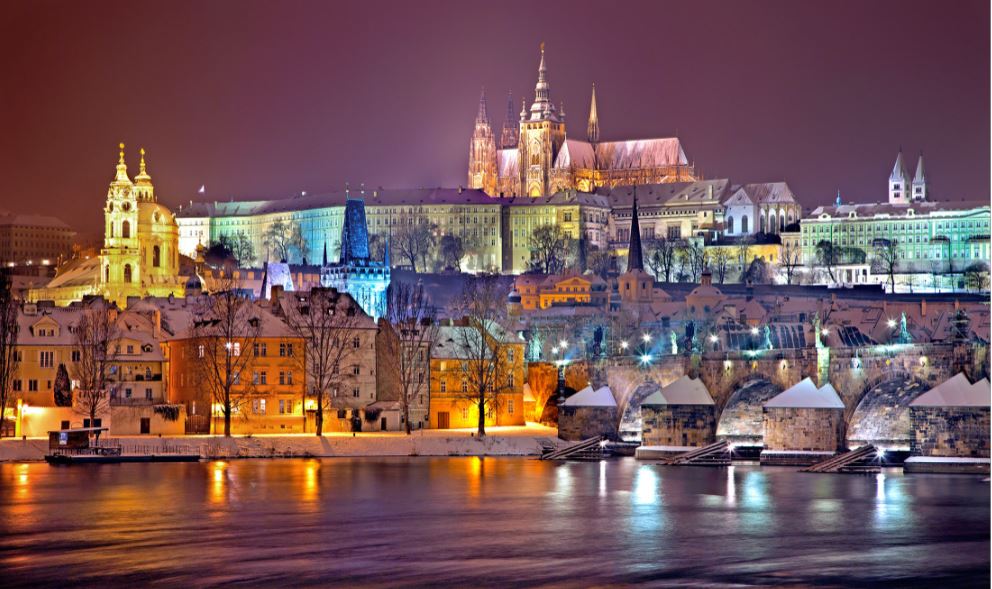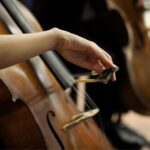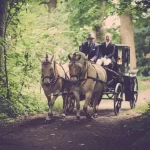Beethoven, during his life visited Prague three times. This article will follow him and the events of these occasions.
In February 1796, Beethoven’s friend and patron Prince Karl Lichnowsky took the young composer on a concert tour, just as he did seven years before with Mozart. Presumably the Prince was hoping for similar success with his new protégé.
In Prague they booked rooms at the same inn, Zum Goldenen Einhorn (the Golden Unicorn), where Lichnowsky and Mozart had stayed. Beethoven wrote a letter to his brother Johann reporting on the stay, saying “First of all, I am well, very well. My art is winning me friends and renown, and what more do I want? And this time I’ll make a lot of money. I’ll stay here for a few weeks longer and then travel to Dresden, Leipzig, and Berlin…”
The stay in Prague was very fruitful. He worked on his First Symphony, composed a Piano Sonata (Op. 49, no.2), six German dances, a wind sextet (Op. 71) he claimed to have written in one night, and some Goethe settings. During the stay he met the Countess Josephine de Clary, who happened to be a mandolin player. For her Beethoven wrote some pieces, too. Apart from the composing he also gave two charity concerts, one in February and one in March, benefiting the Poor Institution.
|Related: The first public concerts of Beethoven in Vienna
The most renowned product of the Prague stay was the music written for an Italian text called Ah! Perfido! This is a piece, where moods change quickly in both directions and the text is rather melodramatic. Most would agree that this is not Beethoven’s most original piece, but instead follows the traditions of the Mozartian or Italian opera traditions. The composition was dedicated to the earlier mentioned Countess Clary, who was a competent singer. The Ah! Perfido! was premiered in Leipzig, November that year. Lead singer was Mozart’s friend Josefa Duschek.
Beethoven visited Prague the second time two years later, in 1798. He made several private and public concerts, featuring the first two piano concertos and the usual improvisations. The Czech composer and virtuoso Wenzel Johann Tomaschek was in the audience. About the impact Beethoven had on him he writes, “Beethoven’s magnificent playing and particularly the daring flights in his improvisation stirred me strangely to the depths of my soul; indeed I found myself so profoundly bowed down that I did not touch my pianoforte for several days.”
|Related: The concerto – part I.
Overcoming this strange emotional state he attended the next concert, too. This time he was in a more analytical frame of mind spotting some weaknesses in the improvisation. He writes, “This time I listened to Beethoven’s artistic work with more composure. I admired his powerful and brilliant playing, but his frequent daring deviations from one motive to another, whereby the organic connection, the gradual development of ideas was broken up, did not escape me. Evils of this nature frequently weaken his greatest compositions . . . The singular and original seemed to be his chief aim.”
This observation was not new and definitely not the last. When criticism tried to find a hold on Beethoven’s improvisations this topic re-appeared often, namely that he was too easily jumping from one musical idea to the next, without proper unity or coherence.
Beethoven returned to Vienna by the end of October, 1798. He visited Prague for the last time only briefly. In June 1812, on his way to Teplitz (a spa resort) he stopped by and visited his friend Prince Kinsky (for collecting his stipend). This was the last time, when Beethoven was in the beautiful city of Prague.








